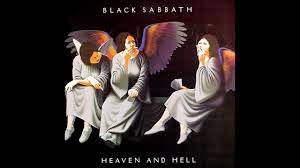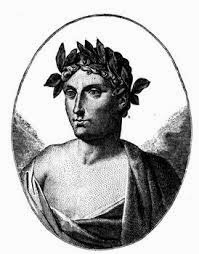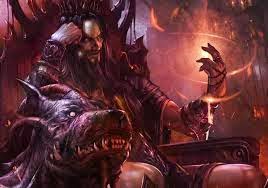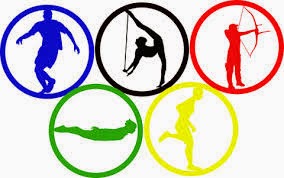The Odyssey, in a few words, can be described as Homer´s masterpiece. Ancient Greece provided modern culture with the appropiate fertile land in which new literary works could be created. The magic of it is that it still lives on due to the phenomenom of intertextuality and its own story line. This epic novel attributed to Homer, represents the foundations of our actual literature, therefore we owe it reverence and respect. Here lies a brief analysis of this awesome work.
(If you have no idea what this book is about, please refrain from reading and first at least take a sneek-peek at this eerie summary.
To Summary and beyond

Is Homer really the actual author of this book? Or could there be various writers in The Odyssey? By reading the novel, one can deduce that there are several people involved in the writing process. First of all, Homer detaches himself from the creation of the story line by admitting that he is just an instrument to publish the story. On the other hand, there are various styles of writing in the book that suggests that there are many people behind the literary work.
The implicit readers of this book are definitely the Greeks, there was no room for anybody else. The mighty Greek culture, with their air of superiorness and bravado, could only design a book like this to be read solely by the Greeks. The horizon of expectations that Homer approached was one of teaching. Through The Odyssey, Homer believes that he can teach the Greeks lessons of divinity and cunningness, let´s not forget that The Odyssey is a book of religious nature that sought to pass on the actions of great heroes and gods.
The book itself is a marvelous example of the use of flashbacks. We know throughout the novel that Odysseus misses 20 years with his wife, Penelope. At the beginning, Odysseus is just around 27 days away from reaching home, nevertheless, by using a flashback he retells his tale that involved a 10 year delay from reaching Ithaca. So in fact the action that takes place in The Odyssey is a very small period of time in comparison to the other 10 years that Odysseus spent wandering in the midst of the Aegian Sea.
There are many elements of Ancient Greece that can be found in the book, but we can mainly spot two different Greeces: The one before the Troyan war, and the one after it. Before the war Ithaca was a peaceful place, Aquiles was alive, Helena had not betrayed his Troyan husband, and the Greeks had yet not proved themselves as the best warriors. After the war, Ithaca is torn apart as well as families, because of this Odysseus strives for going back home.
Homer belonged to a particular group of writers that were in charge of recording events by singing them in a kind of lyrical way. The Odyssey of course, is not a plot entirely devised by him, but in spite of this he became famous because he was the first one to write it down. Traditionally, these type of stories would go from person to person in an oral manner.

The chief antagonist...Why Poseidon? He becomes the direct enemy of Odysseus when he blatantly cursed the sea in his name when he set sail from Troy. By doing this, our hero defied the holiness of the gods and so he received a punishment.
What is the importance of the city? In Greece, the city was everything: your homeland, your birthplace, the land in which you grew up and that you must eventually maintain and protect. Loosing your city is something deplorable because it means that you are not worthy of having one. On the other hand, the value of the individual is very underlined in the Odyssey. Being cunning and a good leader will help you achieve virtues that are of great value in Greece.
Let´s explore the technical details of the poetry. How is it organized? By Books (24) and verses, a very simple and old fashioned arrangement that does the trick. The organization of the events is pretty simple too: it first follows a straight present line (arrival to the Phaeacians), then the introduction of an analepsis that narrates the previous 10 years, and finally the continuation of the present line by entwining it to the return to Ithaca.
Questions regarding the action: ¿Is it a book of adventures? ¿What do these events represent? ¿How do I relate it to my context? Of course it is a book of adventures, let us say that it narrates the greatest adventure of all time. Also it is important not to forget that the adventures represent a stronghold of moral teachings. The events represent the constant search for home, the ultimate destination and how a man with great intelligence can virtually solve anything. Finally, the link between The Odyssey and our actual world is that to accomplish something, you must be courageous, smart, and patient, we can translate those values from the book to nowadays.

Is it men against gods or gods and men? I believe it is gods and men, because gods come in firsthand. They take the important decisions and never pass an opportunity to demonstrate humans that the real power resides in them. Men are not against gods, actually i think it is some men with their gods against other men with their respective gods. Thanks to this dichotomy in the The Odyssey, we can acquire a great and complete view of the Helade.
There are always other ways in which to represent ideas. We use actions to grant the reader a view of the idea we want to share. Actions are servants to the idea, that is a law. So there are always other ways. Nonetheless, the quality of a certain action can enhance the impact of the idea and the degree of comprehension. Taking this in account, the climax of The Odyssey is pretty well conococted.
The climax is a paradigm to be broken. True enough; the platonic idea of a book is itself having a single climax. Regardless of this, the new conception of the novel is that it can contain more than one climatic point. I agree with this theory because I can think of several point in the story line that can accomplish themselves as climatic points. The equilibrium between these points is the key to a well structured argument. Separate the points, give the novel space to breath, make the novel an up and down voyage, play with the characters, enter plot twists, but don´t suffocate it.
Two of the most important literary techniques incorporated in the Odyssey are the inclusion of the flashback and the flashforward. Taking the reader to a trip to the past clears the fog of many present events, whereas taking an insight to the events of the future is a perfect resource to include dramatic irony and foreboding.

We have talked about time but not about space. In the book, Odysseus takes his crew to a visit into the Hades (a.k.a Hell). Why did Homer include this episode? The opposition of two totally different worlds is the key to emphasize the characteristics of the real world. Also, Homer uses this opportunity to tie loose some ends from the Illiad. Another vital space for the Greek is the sea. It compromises the most important way of communication; a city without sea is not a complete one. Space as homeland is the final attribute of space in Homer´s work. There is no nation without land and Odysseus firmly believes that he will finally be himself again in a complete manner when he rescues Ithaca from the suitors.
Some thoughts about Homer...Why does he never talk for himself? Because he is just an instrument used to translate the poem from oral way to written. He did not create the adventures of Odysseus so he feels just responsible for making a faithful narration of it. Some people may argue that having a narrator who is also a character provides a better insight to the story and its dynamic. I believe that Homer as an outsider provides an even better, non-biased point of view that takes in account the entire staff of characters. The beauty of The Odyssey is that it compromises the three pillars of literature: poetry, narrative, and theatre. It combines fantastic characters in a poetic language that can be represented in a play.

A worldwide maxim: There is no epic book without epic characters. The importance of a goody-goody character like Odysseus is vital in this book because it provides a role model for the Greek civilization in terms of conduct, leadership, and honor. Odysseus is cunning and strong, he can fight and he can outwit his opponents. He has certain flaws, but after all he is human and not a god. The gods represent an entirely different aspect of characters. The gods are the masters of puppets in The Odyssey, they decide and fight for their favorite humans. What the gods say, that shall be done. My favorite character is Argos, the faithful dog is the only one that recognizes his master. That touch of fidelity is for me a climatic point of the book, it really is a touching scene that comes from a creature with no rationality but pure will.
Is the story line more centered towards the gods or men? I think it is all oriented towards the gods because they are the ones that ultimately decide. Men are fragile and also the creation of the gods, so somehow, the humans are subjugated to the arbitrary force of the gods.

Some aspects worthy to mention: intelligence and technology. What is their importance? Intelligence is the key to each and every small step that Odysseus makes in order to reach home. He is always wise when dealing with problems, specially when handling the situation with Polyphemus. Technology appears in different manners: navigation, boatcraft, sewing machines, weapons, etc...
The converging point of all the points is without a doubt Ithaca. The city of Odysseus becomes the talisman that guides and encourges him to come back home. Ithaca represents the ideal Greek city with a mighty king and a powerful legacy.
In conclusion, The Odyssey functions as the standing ground of western literature. It is of enormous importance to literature due to the magnitude of influence and the repercussion it has had throughout the years. Trying to picture the world of books without Odysseus is impossible. I liked the book, it is entertaining and instructive, it has a fantastic plot that is well exploited and the narrative never gets in a gritty mood. It was all I expected and much more.
 Horace, a distinguished Roman poet, is widely known by his contribution to poetry in the Roman empire. He is a key figure in the latin process of writing because he was one of the first guys to try and rediscover the Greek way of writing and thinking that was once lost through the decline of the Greek hegemony. Horace proved to be an outstanding student, and would eventually consolidate himself as one of the best poets of his time.
Horace, a distinguished Roman poet, is widely known by his contribution to poetry in the Roman empire. He is a key figure in the latin process of writing because he was one of the first guys to try and rediscover the Greek way of writing and thinking that was once lost through the decline of the Greek hegemony. Horace proved to be an outstanding student, and would eventually consolidate himself as one of the best poets of his time. The warning tone this poem has is that it tells us about spirituality. For Horace, this was the most important characteristic a man should have, and he is not blind, because he understands that Rome is not a very spiritual empire. He depicts in his poems the images of great lords that achieve recognition and satisfaction but that settle with carnal needs, he insists upon searching for the real thing that satisfy us, which are the intangibles of this life.
The warning tone this poem has is that it tells us about spirituality. For Horace, this was the most important characteristic a man should have, and he is not blind, because he understands that Rome is not a very spiritual empire. He depicts in his poems the images of great lords that achieve recognition and satisfaction but that settle with carnal needs, he insists upon searching for the real thing that satisfy us, which are the intangibles of this life. There are great morals behind the teachings of Horace. He underlines the virtue of the civil role in Romans. That whom is a citizen should have a specific set of moral traits that will function as an example to the others. Civil awareness is of key importance for this author, he underlines the importance of family and political hierarchy.
There are great morals behind the teachings of Horace. He underlines the virtue of the civil role in Romans. That whom is a citizen should have a specific set of moral traits that will function as an example to the others. Civil awareness is of key importance for this author, he underlines the importance of family and political hierarchy.





















